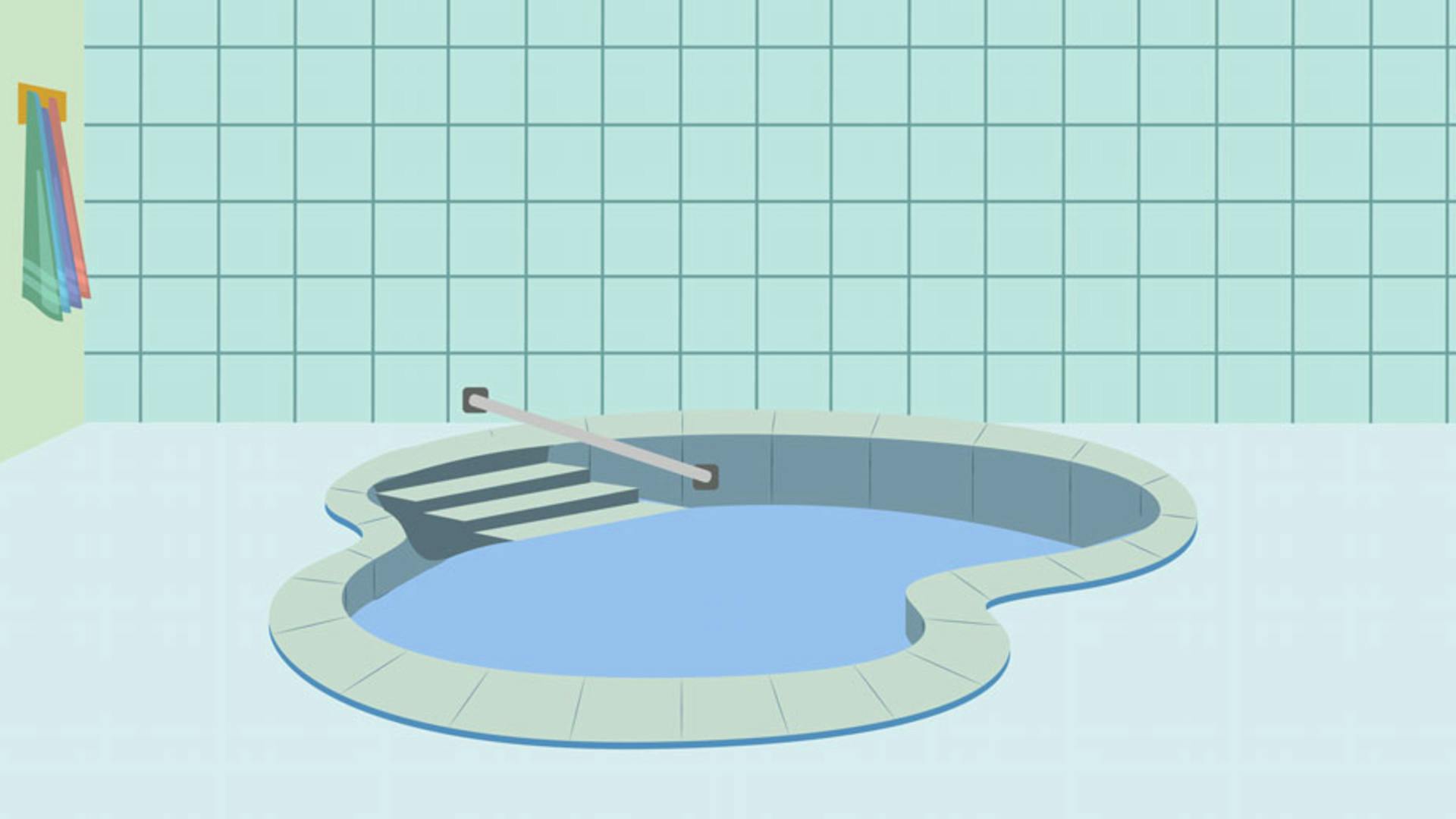
MIKVAH: Rules, Purpose & Meaning for Men and Women
December 27, 2021
Understanding The Laws Of The Mikvah: For Women... And For Men?
Beth Lesch
Scholar
What Is A Mikvah?
A Mikvah is a Jewish ritual bath, designated by God in the Torah as a way to “purify” oneself when in a state of impurity. There are several different scenarios that would render someone in need of immersing in a mikvah, as we’ll see in a moment. But before we go into the details, what comes to mind when I say the word “mikvah”?
Let me be more specific. When you imagine a mikvah, a ritual bath, who is immersing? Is it a man? Or is it a woman?
Mikvah for Women... and Men?
I’m guessing that 95% of people would answer: “a woman.” Sure, there are times when men immerse in a mikvah: like on erev Yom Kippur, or on their wedding day, or even Chassidim who immerse each morning, or men who want to visit Har HaBayit, the Temple Mount, or men who immerse as part of a conversion process — but as far as most people are concerned, those are the exceptions to the rule. Mikvah is a women’s mitzvah. It’s the place that women visit, somewhat secretively, each month after they menstruate. It’s right up there with making challah and lighting Shabbos candles.
I also used to think of the mikvah as a women’s mitzvah. Let me tell you why I no longer see it that way.
Mikvah In The Torah
It’s quite simple, actually. You see, the Torah doesn’t consider the mikvah to be a women’s mitzvah. Far from it. The first time that we hear about immersing in a mikvah, it refers to a kohen, a priest, who was preparing himself to serve in the Mishkan (Exodus 29:4). And just a few parshiyot after that, we learn that anyone who was tamei, “spiritually impure,” needed to go to the mikvah as part of their purification ritual.
Who are these tamei, impure, people? Are they men, women? The answer is: both. A lot of people fell into this category. A menstruating woman, yes, but also:
- a woman who just gave birth,
- a woman or a man who had an abnormal bodily discharge,
- a man who had a seminal emission,
- a man or woman who had intercourse,
- anyone who came into contact with a human corpse,
- anyone who came into contact with the carcass of a non-kosher animal, or
- a metzora — someone who was diagnosed with tzara’at, often translated as “spiritual leprosy” (for more on this strange disease, see here)
Until these people immersed in a mikvah, they were subject to certain restrictions: for example, they couldn’t bring an offering to God or even visit the Temple.
And this isn’t just some obscure law. In the times of the Mishkan (Tabernacle) or the Temple, these concerns about tumah and taharah — of spiritual purity and impurity — were omnipresent. People were constantly keeping track of their status and engaging in purification rituals to make themselves pure again.
Nowadays, sadly, we don’t have a Temple, we don’t bring sacrifices, so none of these laws are relevant at all. We’re all constantly walking around tamei, and we don’t do anything about it. You get tamei from contact with human corpses simply by visiting a cemetery, or possibly even when you enter a hospital. Sexual intercourse renders both men and women tamei. You’re probably tamei right now. If that sounds scary to you, that’s probably because you assume that there’s something inherently bad about being tamei. That your religious duty is to stop being tamei as quickly as possible. But many commentators dispute that. The Rambam, for example, explains that there’s nothing inherently wrong with being tamei. It’s just that if you want to go to the Temple, or bring an offering, then you have to become tahor, or pure.
So if there’s no Temple today, and we can’t bring sacrifices… then being tamei just doesn’t matter at all. With one exception: a niddah, a menstruating woman.
Menstruating Women Today: What Is The Purpose Of Mikvah?
A menstruating woman in the 21st century goes to the mikvah to become tahor. Why? What Is The Purpose Of Mikvah? Because there’s a law elsewhere in the Torah that says:
וְאֶל-אִשָּׁה בְּנִדַּת טֻמְאָתָהּ--לֹא תִקְרַב לְגַלּוֹת עֶרְוָתָהּ.
A man cannot uncover the nakedness of a woman who is tamei because of niddah. (Leviticus 18:19)
Did you catch that? It is prohibited for a man to be intimate with a woman who has the status of tamei, spiritually impure, because of her menstrual bleeding. This has nothing to do with the Temple, or sacrifices to God. It’s a separate, isolated law.
But it’s still a law — and it means that if a married couple wants to be intimate, then the woman needs to pay close attention to these laws and to immerse in a mikvah to become tahor. That is why menstruating women pay monthly visits to the mikvah. That is why we think that the mikvah is a woman’s mitzvah… when actually, the women part is just the sole surviving remnant of a much more sweeping practice. It used to be that everyone thought about tumah and taharah. Nowadays, only one person does that: the menstruating (or birthing) woman.
But that leaves one enormous question unanswered: Why would it be that immersion in a mikvah makes you pure? It almost seems like magic. You just dunk in the water and suddenly your whole status is reversed? Now you can go to the Temple, can bring a sacrifice, can be intimate with your spouse? Doesn’t the whole thing seem kind of arbitrary?
Maybe that sounds like a perfectly normal religious ritual to you, because you’re used to it, but I gotta tell you, to someone who’s hearing about mikvah for the first time, it doesn’t sound so normal. Prayer — now that’s a normal religious ritual. It’s understandable. Giving to a poor person, that’s a normal religious ritual. But dunking in a mikvah?
Mikvah Rules & The Meaning Of Mikvah
And at the risk of adding insult to injury, allow me to point out that dunking in the water is the least weird thing about the mikvah. There are loads of laws requiring that the dunking be done in a most particular way, and that the mikvah be built in a most particular way. You can’t just dunk any old way in any old water. For example, if you don’t clean your body thoroughly before you immerse — if your nails are dirty or there’s food stuck in your teeth — then from the perspective of Jewish law, it’s basically meaningless. And even if you did everything right, if the mikvah doesn’t conform to seemingly random laws — like if you used a bucket to fill it up with water — then again, it’s halachically meaningless. It doesn’t matter how good your intention. You’re not pure. You can’t be intimate with your husband. You can’t visit the Temple.
What’s the deal? Those of us who are familiar with Judaism are used to confronting seemingly random laws now and then, but this whole thing of mikvah just doesn’t seem to make much sense. Why does God want us to immerse in these 6 foot by 8 foot chlorinated swimming-pools-for-one? What is the experience supposed to mean to us?
It turns out that there’s a story in the Torah about mikvah, but you’ve probably never noticed it before, because you’ve been looking in the wrong place. This story will add incredible richness and depth to your understanding of the mikvah, will explain the seemingly random laws that govern it. Speaking personally, ever since coming upon this story, my own relationship to the mikvah has been transformed. Click here to watch the video, “Why Does the Mikvah Make Me Pure?”
Learn more about other Jewish topics at Aleph Beta by checking out guides like What Is Shabbat, Eshet Chayil: A Song For Friday Night, and The Tabernacles Colors & Symbolism .
